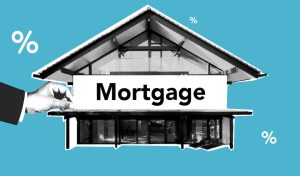Why Spring is a Prime Time for Real Estate Spring consistently ranks as one of…
Understanding Mortgage Closing Costs
Understanding Mortgage Closing Costs: Guide to Fees and Expenses
Stepping across the threshold of your future home, you can almost hear the laughter and see the memories waiting to be created. Yet before keys change hands, a less poetic reality awaits—the maze of mortgage closing costs.
These expenses are not to be overlooked or underestimated. On average, buyers might commit 2% to 5% of their loan’s value to closing fees.
Demystifying Mortgage Closing Costs
Navigating Mortgage Closing Costs: A Guide to Understanding and Planning
Buying a home is a significant milestone, but it’s accompanied by various expenses that can seem bewildering at first. These are known as mortgage closing costs, and they cover essential services and legal procedures required to securely transfer the property into your hands. Let’s simplify and break down these costs to make your journey to homeownership more transparent and less daunting.
Understanding the Components of Closing Costs
- Transfer Taxes: This is a standard fee you’ll encounter when buying a home. It’s a tax for transferring the property title from the seller to the buyer.
- Title Insurance: Obtaining a mortgage almost always requires title insurance. This protects you and the lender from potential legal issues with the property’s title.
- Appraisal Fee: An appraisal assesses the property’s value and is a critical part of getting a mortgage.
- Other Standard Fees: Despite what lenders may imply, certain fees are unavoidable, such as credit checks, attorney fees, and loan origination fees.
The Clarity of Official Loan Estimates
It’s crucial to get an official loan estimate from your lender. This document is more transparent and reliable than alternatives like Excel worksheets or good faith estimates. The loan estimate clearly outlines all the fees you are expected to pay.
Understanding Section “A” of Your Loan Estimate
Section “A” of your loan estimate is particularly revealing. It shows if there are any additional bank fees associated with your mortgage rate. A clear understanding of this section can help you anticipate the actual cost of your loan.
Preparing for Escrow and Prepaid Interest
- Escrow Accounts: Be prepared to fund an escrow account with approximately 15 months of homeowner’s insurance and a few months’ worth of property taxes.
- Prepaid Interest: The closing date affects your prepaid interest. Closing earlier in the month could mean paying more in prepaid interest, but this isn’t an additional cost—just a timing issue.
A Practical Example: Closing Costs in Colorado
Imagine you’re buying a home in Colorado, where the average closing cost is about $3,881. Here’s a breakdown of potential expenses:
- Standard Closing Costs: $3,881
- Homeowner’s Insurance: For 15 months at $200 per month totals $3,000.
- Property Taxes: 4 months at $200 per month equals $800.
- Prepaid Interest: Assuming $100 per day and closing on the 20th, you’ll pay $1,000 in prepaid interest.
In this scenario, you’ll bring approximately $8,681 to the closing table, of which $3,881 represents the closing costs.
Special Considerations for New Builds
When purchasing a new construction home, be aware that taxes can be higher. This is due to municipal bonds and other costs associated with developing the property.
The Anatomy of Closing Fees
Mortgage closing fees encompass essential evaluations and administrative services, ensuring a transparent and lawful property transfer. They safeguard both lender and buyer’s investments.
Costs also reflect processing charges like underwriting fees, proving creditworthiness and sorting out loan specifics. They’re unavoidable, but they signify progress toward securing your home.
Colorado averages $3,881 in closing costs.
Other fees include prepaid expenses such as property taxes and insurance, set aside in escrow. These prepaids, along with lender’s title insurance and survey fees, cement your footing in your new property.
Regional Variations in Closing Expenses
Closing costs are not standardized nationwide; they fluctuate vastly across different states and localities.
- Application Fees: The cost to process your loan request may vary due to regional administrative expenses.
- Title Search and Insurance Costs: The fees associated with ensuring a clear property title can differ due to state regulations.
- Transfer Taxes: These taxes are subject to state and local laws, causing them to vary more than most other closing expenses.
- Prepaid Property Taxes and Insurance: The rates for these prepayments can reflect the cost of living and tax rates in the region.
- Attorney and Closing Agent Fees: Some states require an attorney to be present at closing, which can add to the total costs.
Localized legal requirements and tax laws heavily influence your final closing cost tally.
Understand your area’s specifics to accurately estimate total expenses; when in doubt, consult with a local real estate expert.
Key Components of Closing Costs
In the realm of mortgage finance, a borrower’s closing costs are comprised of various fees and expenses that ensure the clear transfer of property ownership. You’ll encounter charges for vital services like appraisals and credit reports, ensuring the lender’s investment security. Additionally, prepaid items like real estate taxes and insurance must be settled, often placed in an escrow account to cover future payments. This upfront settlement safeguards both the homeowner’s and the lender’s interests against unforeseen liabilities.
Delving deeper into these costs, loan origination fees stand out as a significant portion of what you’ll pay, compensating the lender for processing your mortgage application. Other technical but crucial fees include survey costs, meant to define property lines, and flood certification fees to assess if the home lies in a flood-prone area. Closing costs are the cumulation of these itemized charges, and understanding them helps in discerning the true investment required in securing your new Colorado Springs dwelling.
Understanding Prepaid Items
Prepaid items are upfront costs you pay at closing, separate from other mortgage-related fees.
- Homeowners Insurance Premiums: Usually, a year’s premium is required in advance.
- Property Taxes: Several months of estimated taxes may need to be prepaid.
- Mortgage Interest: This covers the interest from the closing date until your first mortgage payment.
- Escrow Account Deposits: May include funds for future insurance premiums and tax payments.
Think of these as the initial deposit into your home’s “savings account” for recurring costs.
These expenses ensure you’re covered from day one and prevent surprises in your budget down the road.
Navigating Lender and Third-Party Fees
Every loan bears its unique costs.
When planning your home purchase, it’s prudent to distinguish between lender and third-party fees. Navigating the waters of mortgage finance requires an understanding of various charges, from origination fees that lenders impose and third-party fees for title searches and appraisals. Typically, these fees will be itemized and presented in the closing disclosure for your scrutiny.
Third-party providers, such as appraisers and title companies, set these fees independently of your lender, and they usually need to be paid directly to the respective service provider.
Understanding what’s negotiable can protect your wallet.
By staying attuned to the nuances of these expenses and evaluating lender estimates with a critical eye, homebuyers can optimize their financial outlays. Ensuring you’re well-informed ahead of time can lead to successful negotiations and potential savings.
Calculating Your Expected Closing Expenditure
Determining your anticipated closing costs involves a detailed review of both lender fees and estimated third-party charges. Precise calculations hinge on integrating lender-related expenses such as origination and application costs, and itemized third-party fees like title searches and appraisals. Complete foresight in these calculations is paramount for financial readiness at the closing table.
An accurate approximation of your closing outlay also demands consideration of localized tax rates and government fees that could affect your overall expenditure. Scrutinizing these variables early in the homebuying process is crucial to ascertain the precise funds necessary to finalize your home purchase.
Impact of Closing Date on Prepaid Interest
Timing impacts your closing costs.
Choosing your closing date is more complex than marking a calendar. It can significantly affect the amount of prepaid interest, since your first mortgage payment often doesn’t come due until a full month after the subsequent month.
Prepaid interest spans from closing to first payment.
Closing earlier in the month maximizes prepaid interest owed. Conversely, ending the month at the closing table reduces the prepaid interest, aligning payment schedules favorably.
Control your prepaid interest with strategic closing.
Understanding your timetable aligns with understanding potential costs, particularly those tied to the timing of your closing. As you march towards homeownership, selecting a strategic closing date in 2023 can moderate your upfront financial burden, giving you a smoother transition into your new home.
The Role of Escrow Accounts in Total Costs
Escrow accounts safeguard both buyer and seller interests. These accounts ensure that insurance and taxes are paid on time, avoiding any lapse in coverage or delinquency on the property.
When setting up an escrow, the lender estimates yearly costs for property taxes and homeowners insurance. These costs are prorated to determine how much you’ll bring to closing, augmenting your total upfront costs.
Additionally, lenders often require a cushion for the escrow account to cover potential increases in taxes or insurance. This means you might contribute more at closing than the exact payments for the year.
The initial escrow payment often includes several months of property taxes and insurance. This could significantly increase the funds needed at closing, on top of other mortgage-related expenses.
Ultimately, escrow accounts provide financial stability, but they also require careful consideration when budgeting for your home purchase to handle the additional closing costs.
State-by-State Breakdown of Average Mortgage Closing Costs
The average mortgage closing costs can vary significantly from one state to another. This variation is due in part to differences in state and local tax laws, as well as differences in the cost of living.
Table: Average Mortgage Closing Costs by State
| State | Average Closing Costs |
|---|---|
| Alabama | $2,986 |
| Alaska | $3,581 |
| Arizona | $4,701 |
| Arkansas | $3,115 |
| California | $7,953 |
| Colorado | $3,881 |
| Connecticut | $8,821 |
| Delaware | $17,859 |
| Florida | $8,554 |
| Georgia | $3,762 |
| Hawaii | $7,463 |
| Idaho | $4,082 |
| Illinois | $5,929 |
| Indiana | $2,200 |
| Iowa | $3,146 |
| Kansas | $2,793 |
| Kentucky | $2,802 |
| Louisiana | $3,711 |
| Maine | $4,420 |
| Maryland | $14,721 |
| Massachusetts | $7,964 |
| Michigan | $5,714 |
| Minnesota | $4,011 |
| Mississippi | $2,756 |
| Missouri | $2,061 |
| Montana | $3,337 |
| Nebraska | $2,781 |
| Nevada | $6,383 |
| New Hampshire | $8,183 |
| New Jersey | $7,915 |
| New Mexico | $3,513 |
| New York | $16,849 |
| North Carolina | $3,406 |
| North Dakota | $2,501 |
| Ohio | $4,223 |
| Oklahoma | $2,893 |
| Oregon | $4,327 |
| Pennsylvania | $10,634 |
| Rhode Island | $5,568 |
| South Carolina | $3,447 |
| South Dakota | $3,105 |
| Tennessee | $3,911 |
| Texas | $4,548 |
| Utah | $4,837 |
| Vermont | $7,906 |
| Virginia | $6,346 |
| Washington | $13,927 |
| West Virginia | $3,406 |
| Wisconsin | $3,459 |
| Wyoming | $2,589 |
Closing costs are generally standard, but they can vary from one transaction to another. For example, if you choose to buy down your rate, this will increase your overall costs. Another aspect that can be confusing is prepaid interest. If you close on the first day of a month, like January 1st, you might pay a significant amount in prepaid interest. This is because your first mortgage payment won’t be due until March 1st, allowing you to skip the current month and the next. However, if you close on the last day of the month, your prepaid interest will be much less, possibly around $150. This is because you’re only paying one day of interest, but you’ll still skip the next month’s payment. For instance, a closing at the end of January means no payment in February, with the first one due in March.
It’s also crucial to understand the potential need for an escrow account. Banks typically require you to bring 15 months’ worth of insurance payments and two to four months’ worth of property taxes. When calculating your closing costs, consider your state’s average costs, add your prepaid interest (which depends on your closing day), and factor in your escrow amounts. This calculation will give you a clearer picture of the total amount you’ll need to bring to the closing, in addition to your down payment.
How much are mortgage closing costs typically?
Mortgage closing costs typically range from 2% to 5% of the loan amount. These costs include various fees associated with the home buying process. Let’s break down some of the common expenses you can expect to encounter:
- Loan Origination Fees: This is a fee charged by the lender for processing the loan application. It usually ranges from 0.5% to 1% of the loan amount.
- Appraisal Fee: An appraisal is required to assess the value of the property. This fee can range from $300 to $500.
- Credit Report Fee: Lenders pull your credit report to evaluate your creditworthiness. The fee for this report is typically around $30.
- Title Search and Insurance: These fees ensure that the property has a clear title and protect against any potential ownership claims. Costs can vary, but expect to pay between $500 and $1,000.
- Home Inspection Fee: It’s important to have a professional inspection to identify any underlying issues with the property. This fee can range from $300 to $500.
- Survey Fee: A survey may be required to confirm the property boundaries. Costs can range from $300 to $500.
- Prepaid Interest: This is the interest that accrues on your loan between the closing date and the start of your first mortgage payment.
- Escrow Account: Lenders may require an escrow account to cover property taxes and homeowners insurance. The initial funding for this account can be around two to three months’ worth of payments.
Remember, these are just some of the common closing costs you may encounter. It’s important to review your loan estimate and closing disclosure documents for a detailed breakdown of the costs specific to your mortgage.
Keep in mind that closing costs can vary depending on factors such as the loan amount, location, and the lender you choose. It’s always a good idea to shop around and compare offers from different lenders to ensure you’re getting the best deal.
Conclusion
Understanding mortgage closing costs is a critical part of the home buying process. These costs vary by state and are influenced by factors like transfer taxes and the closing timing. Being well-informed can help you prepare for this significant financial step.
If you’re planning to buy a home in Colorado, consider working with 719 Lending, a trusted name in Colorado real estate and finance. We can help you understand all the costs involved in your home purchase and ensure a smooth transaction. Reach out to us today for a personalized consultation.
Call to Action: Understanding your mortgage closing costs is the first step towards a stress-free home buying experience. Begin your journey with 719 Lending today – your trusted partner in Colorado real estate and finance.




